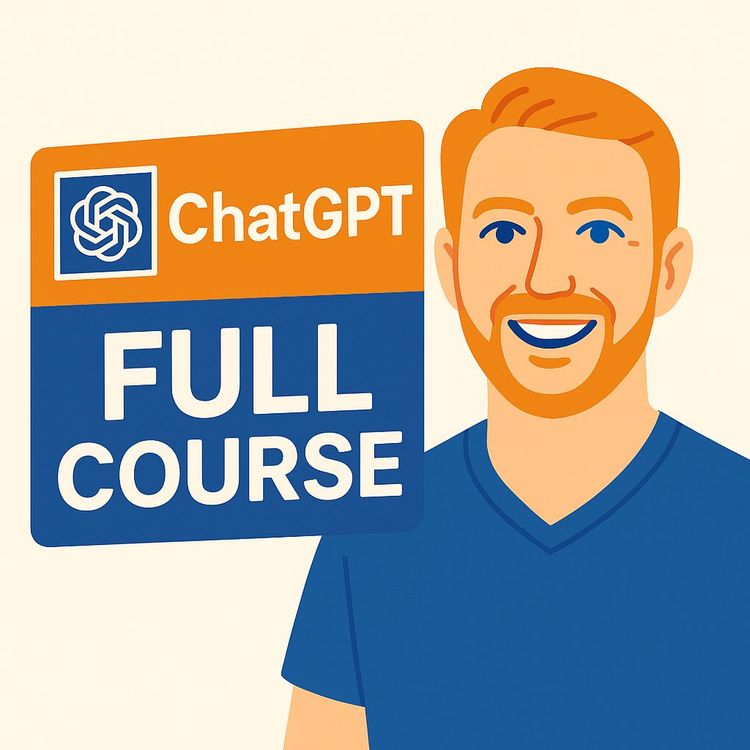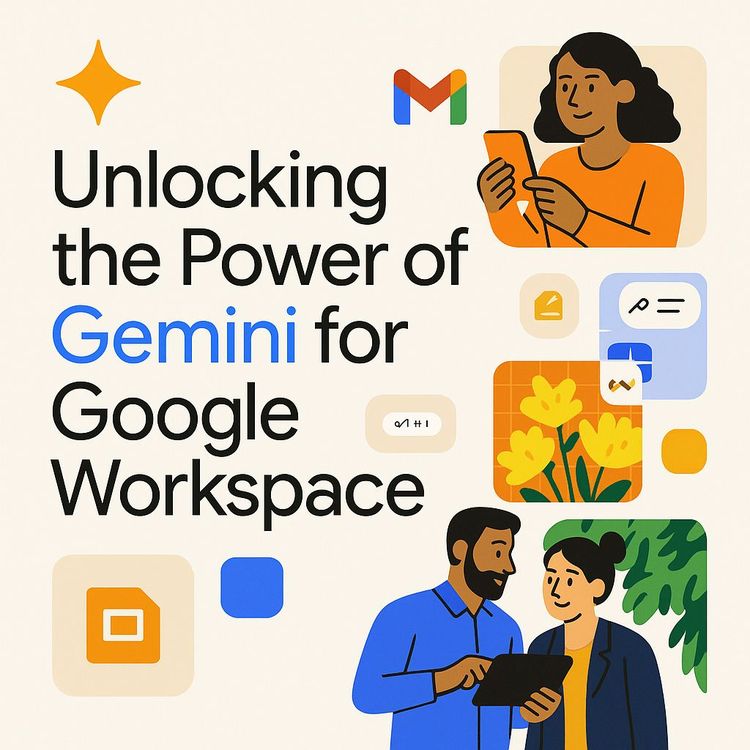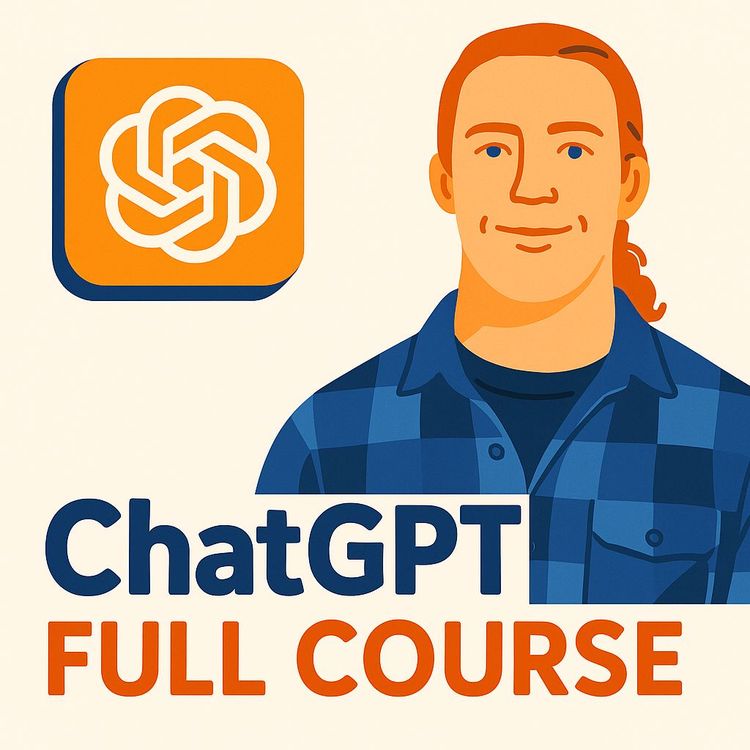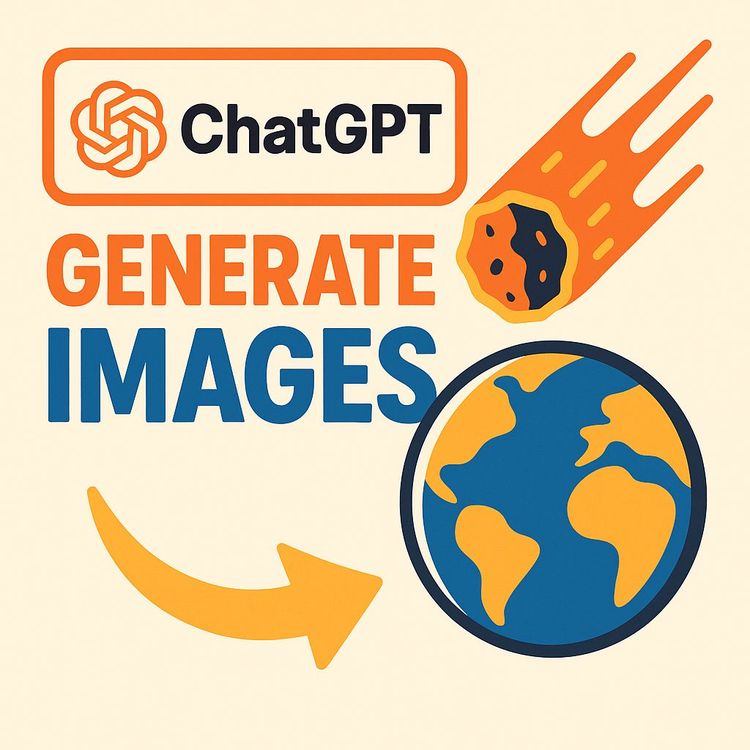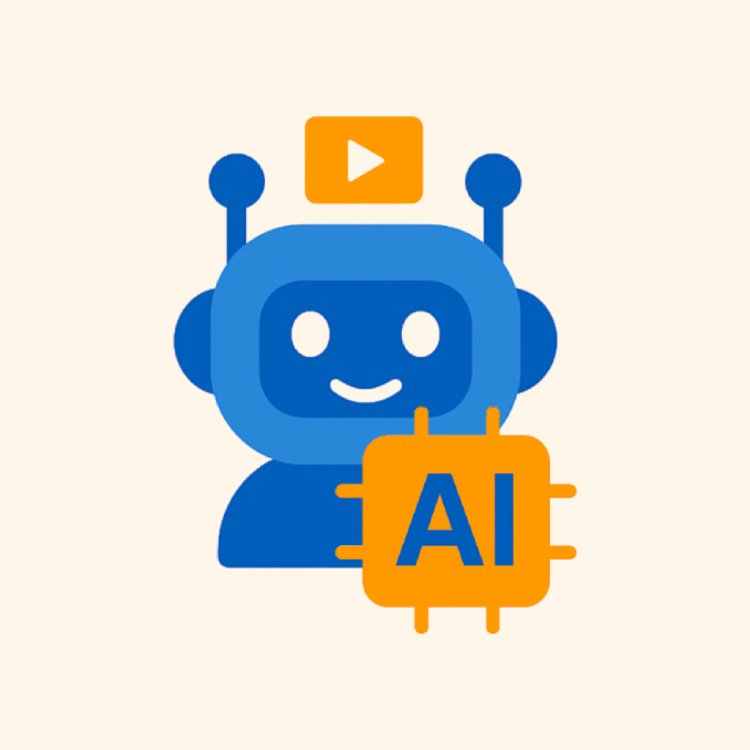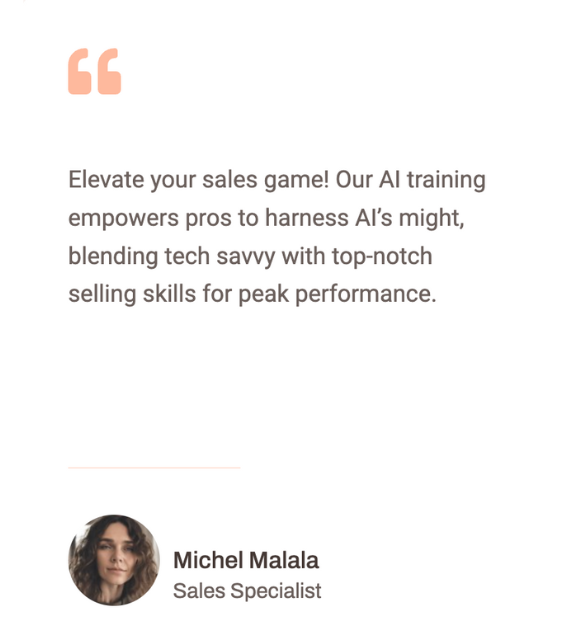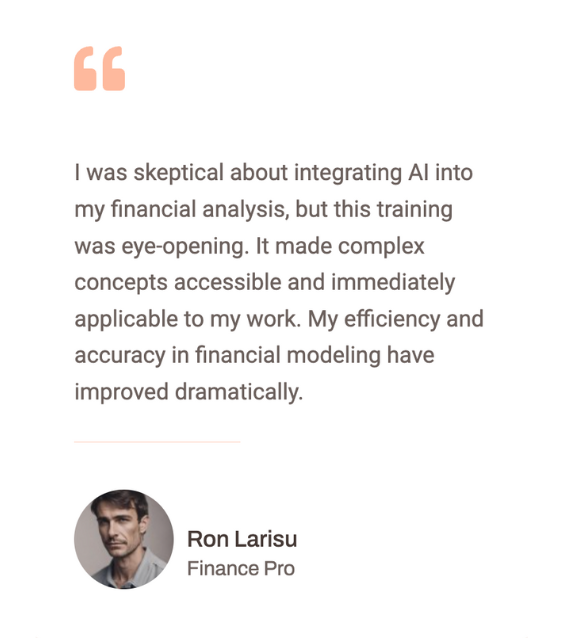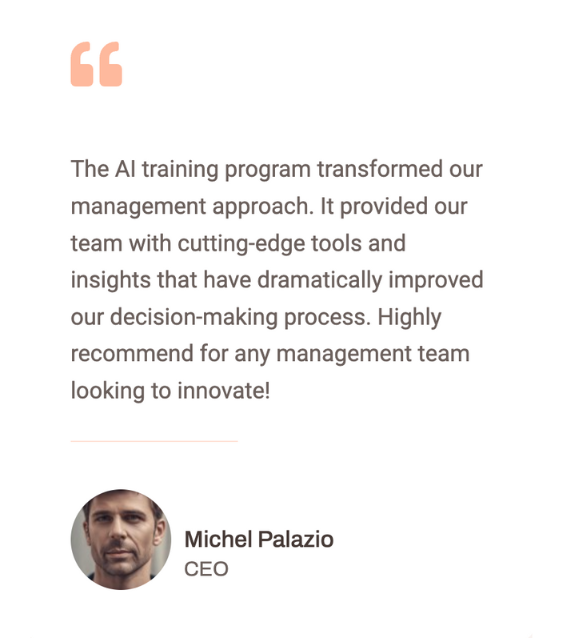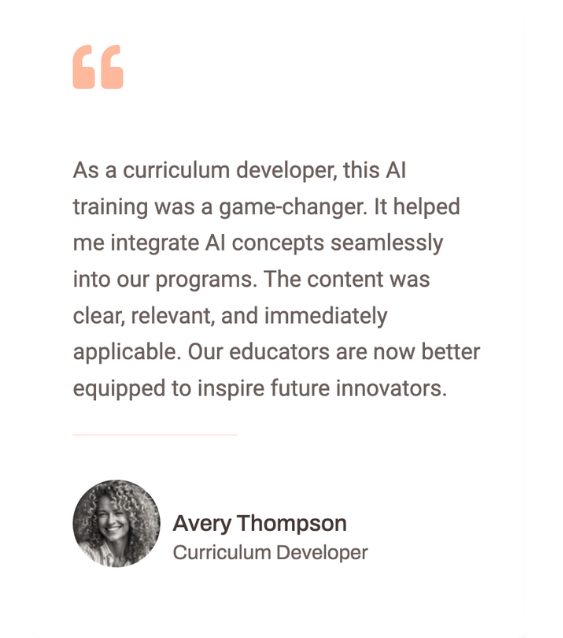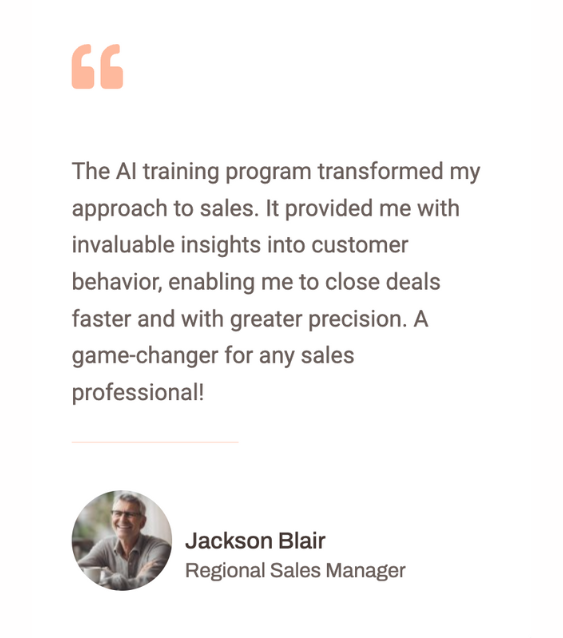Video Course: Building an AI Sales Coach in 15 minutes (Custom Chat GPT tutorial)
Create a tailored AI sales coach in just 15 minutes! Enhance your team's productivity and consistency with a custom tool designed to centralize efforts and meet your business needs.
Related Certification: Certification: Create a Custom AI Sales Coach with ChatGPT in 15 Minutes
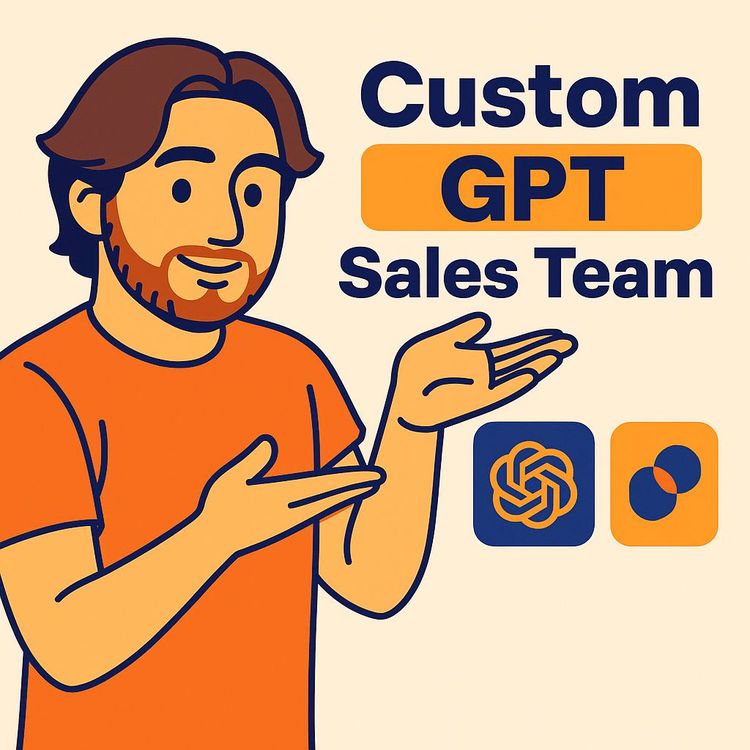
Also includes Access to All:
What You Will Learn
- Build a custom ChatGPT sales coach in 15 minutes
- Apply the SPIN selling framework to AI-generated scripts
- Upload and use a knowledge base for contextual responses
- Integrate custom actions (web scraping) via Relevance AI
- Set up API authentication and a privacy policy for sharing
Study Guide
Introduction
Welcome to the comprehensive guide on building an AI Sales Coach using custom Chat GPT in just 15 minutes. This course is designed to empower you with the knowledge and skills to create a tailored AI tool that can revolutionize your sales strategy. By the end of this course, you'll be equipped to create a custom AI sales coach that centralizes sales efforts, enhances team productivity, and ensures consistent application of sales methodologies. Whether you're a business owner, sales manager, or AI enthusiast, this guide will help you harness the power of AI to meet your specific business needs.
Understanding the Value of Custom GPTs
The concept of custom GPTs is a game-changer for businesses looking to streamline their AI strategies. Instead of disparate AI usage across teams, custom GPTs offer a unified approach. Imagine a sales team at a recruiting agency using a tailored AI that generates sales scripts and questions based on the SPIN selling framework. This is the power of custom GPTs—tailoring AI capabilities to meet specific business functions.
Example:
A recruiting agency can create a custom GPT that analyzes prospect information and generates personalized sales scripts, enhancing the team's efficiency and consistency.
Democratization of AI Implementation
Many businesses struggle with implementing AI in a cohesive manner. Employees often use tools like ChatGPT for varied purposes, leading to fragmented efforts. The solution lies in creating custom GPTs that consolidate these efforts into a focused tool for specific teams, such as sales.
Example:
A company could develop a custom GPT to centralize all sales-related AI tasks, ensuring that every team member uses the same AI-generated scripts and questions, thereby maintaining consistency and quality in client interactions.
Creating Custom GPTs for Specific Business Needs
The core idea is to tailor ChatGPT's capabilities to the unique requirements of a business function. For a sales team, this means generating relevant sales materials and scripts. By leveraging custom GPTs, businesses can create AI tools that align precisely with their operational goals.
Example:
A retail company might create a custom GPT that crafts promotional messages based on customer data and sales trends, providing the marketing team with targeted and timely content.
Leveraging Knowledge Bases for Contextual Information
Custom GPTs can be trained on internal company information and specific methodologies by uploading relevant documents. This enables the AI to provide more accurate and contextually appropriate guidance.
Example 1:
A tech company can upload product manuals and customer service protocols to train their custom GPT, ensuring that it provides precise and helpful responses to customer inquiries.
Example 2:
A financial advisory firm might upload investment strategies and market analysis reports to create a custom GPT that offers informed financial advice to clients.
Implementing Custom Actions for Enhanced Functionality
The capabilities of a custom GPT can be extended beyond its inherent language processing by integrating custom actions. This involves using external tools and APIs to perform specific tasks, such as web scraping.
Example 1:
A travel agency could use a custom action to scrape hotel reviews and ratings, enabling the GPT to provide personalized travel recommendations to clients.
Example 2:
An e-commerce platform might integrate a custom action to analyze competitor pricing, allowing the GPT to suggest competitive pricing strategies.
Utilizing Relevance AI for Web Scraping Integration
Relevance AI is a user-friendly platform that allows users to create custom tools, such as web scrapers, and integrate them with custom GPTs. This enables the AI to analyze external web content, enhancing its functionality.
Example 1:
A real estate firm could use Relevance AI to scrape property listings, allowing the custom GPT to provide clients with up-to-date market insights.
Example 2:
A news agency might use Relevance AI to gather the latest headlines, enabling the GPT to generate timely news summaries for readers.
Importance of Privacy Policies for Sharing
When sharing custom GPTs externally, a privacy policy is essential. It informs users about data collection and usage, ensuring transparency and compliance with data privacy regulations.
Example:
A healthcare provider creating a custom GPT for patient interaction must have a privacy policy that outlines how patient data is handled, ensuring trust and compliance with healthcare regulations.
Iterative Testing and Refinement
Testing the custom GPT and its components is crucial to ensure they function as intended. This involves iterative testing and refinement to address any issues and optimize performance.
Example 1:
A software company might test their custom GPT by simulating various user interactions, refining the AI's responses based on feedback to improve customer support.
Example 2:
A marketing team could conduct A/B testing on different sales scripts generated by the GPT to determine which approach yields the best conversion rates.
Steps to Create a Custom GPT for Sales
Creating a custom GPT involves several key steps:
- Access the GPT store within ChatGPT (requires a ChatGPT Plus subscription).
- Initiate the creation of a new GPT.
- Configure the GPT by providing a name, description, and detailed instructions on its role (e.g., a SPIN selling coach for a specific company).
- Upload a knowledge base, such as a guide on SPIN selling and information about the recruiting agency's services.
- Potentially enable web browsing capabilities.
- Integrate a custom action using a platform like Relevance AI to enable more advanced functionalities, such as web scraping.
- Set up authentication for the custom action using an API key.
- Define conversation starters for users.
- Create and link to a privacy policy if the GPT is to be shared with others.
SPIN Selling and Its Integration into Custom GPTs
SPIN selling is a sales methodology focusing on four types of questions: Situation, Problem, Implication, and Need-payoff. Integrating SPIN selling into a custom GPT involves instructing the AI to act as a sales coach specializing in this technique and training it using a knowledge base document on SPIN selling.
Example:
A sales team can use the GPT to generate SPIN questions tailored to specific clients, enhancing their ability to identify and address client needs effectively.
Relevance AI's Role in Creating Advanced Custom GPTs
Relevance AI simplifies the process of creating more complex functionalities that go beyond the standard capabilities of ChatGPT. By building custom actions, such as web scraping tools, businesses can enhance their GPT's ability to gather and analyze external data.
Example:
A market research firm could use Relevance AI to collect and analyze competitor data, enabling their custom GPT to provide strategic insights and recommendations.
Sharing and Implementing Custom GPTs Within Teams
Businesses can share custom GPTs internally by sharing a unique link. This allows team members to access and use the tailored AI tool, ensuring a consistent and strategically aligned approach to sales activities.
Example:
A sales manager can distribute the custom GPT link to their team, ensuring everyone uses the same AI-generated scripts and questions, thereby maintaining consistency in client interactions.
Cost and Technical Requirements
Creating custom GPTs with advanced features involves several potential costs and technical considerations. A ChatGPT Plus subscription is required, and platforms like Relevance AI may incur costs depending on usage. While the process is simplified, some technical understanding of API keys, schemas, and web scraping concepts can be beneficial.
Example:
A small business should consider the subscription costs and potential charges from third-party platforms when budgeting for a custom GPT implementation.
Conclusion
By following this guide, you now have the knowledge to build a custom AI sales coach using Chat GPT. This tool can significantly enhance your sales strategy by providing tailored scripts, questions, and insights based on the SPIN selling framework. Remember, the thoughtful application of these skills can transform your sales efforts, leading to improved efficiency, consistency, and ultimately, success in your business endeavors.
Podcast
There'll soon be a podcast available for this course.
Frequently Asked Questions
Frequently Asked Questions: Building a Custom AI Sales Coach
Welcome to the FAQ section for the 'Video Course: Building an AI Sales Coach in 15 Minutes (Custom Chat GPT Tutorial)'. This resource is designed to answer your questions about creating a custom AI sales coach using ChatGPT, from the basics to more advanced topics. Whether you're new to AI or looking to refine your implementation strategy, you'll find practical insights and guidance here.
What is the main problem this video addresses for businesses?
The video addresses the challenge that many business owners face in effectively implementing AI into their operations. Often, employees use tools like ChatGPT in a fragmented way for various tasks such as content creation, email drafting, and research, lacking a unified approach. The video proposes a solution by demonstrating how to create a custom GPT tailored for a specific business function, in this case, sales.
What is a custom GPT and what benefits does it offer a sales team?
A custom GPT is a tailored version of ChatGPT designed for a specific purpose and trained on particular datasets and instructions. For a sales team, a custom GPT can centralise relevant information, such as details about prospective clients and the company's offerings. It can then use this information, along with established sales methodologies like SPIN selling, to generate sales scripts, formulate targeted questions, and ultimately create a more unified and effective sales effort.
What are the key steps involved in creating a custom GPT for sales, as outlined in the video?
The key steps include: Accessing the GPT store within ChatGPT (requires a ChatGPT Plus subscription). Initiating the creation of a new GPT. Configuring the GPT by providing a name, description, and detailed instructions on its role (e.g., a SPIN selling coach for a specific company). Uploading a knowledge base, such as a guide on SPIN selling and information about the recruiting agency's services. Potentially enabling web browsing capabilities. Integrating a custom action using a platform like Relevance AI to enable more advanced functionalities, such as web scraping to gather information on prospective clients. Setting up authentication for the custom action using an API key. Defining conversation starters for users. Creating and linking to a privacy policy if the GPT is to be shared with others.
What is SPIN selling and how is it integrated into the custom GPT?
SPIN selling is a sales methodology focusing on four types of questions: Situation, Problem, Implication, and Need-payoff. The custom GPT integrates SPIN selling by being instructed to act as a sales coach specialising in this technique. Furthermore, it is trained using a knowledge base document on SPIN selling. The custom action, leveraging web scraping, is then used to gather information about potential clients, which the GPT uses to generate SPIN questions tailored to that specific client.
What is Relevance AI and what role does it play in creating a custom GPT with advanced features?
Relevance AI is a platform that allows users to create custom AI tools and workflows. In the context of this video, it is used to build a custom action for the GPT, specifically a web scraping tool. This tool can take a URL as input, extract relevant information from the webpage, and then feed this information back to the custom GPT. The GPT can then use this scraped data to generate tailored sales questions based on the SPIN selling framework. Relevance AI simplifies the process of creating more complex functionalities that go beyond the standard capabilities of ChatGPT.
Why is a privacy policy important when creating and sharing a custom GPT?
A privacy policy is essential if you intend to share your custom GPT with others, either internally via a link or publicly on the GPT store. This is because the GPT might handle data provided by users or access information from external sources (like websites through the custom action). A privacy policy informs users about how their data will be collected, used, and protected, ensuring transparency and compliance with data privacy regulations.
How can businesses share and implement custom GPTs within their teams?
Businesses can share custom GPTs internally by sharing a unique link generated when the GPT is created. This allows team members with the link to access and use the tailored AI tool. This method is particularly suitable for custom GPTs containing proprietary business information, as it avoids making them publicly available on the GPT store. By providing their sales teams with access to such a custom GPT, businesses can ensure a more consistent and strategically aligned approach to sales activities.
What are the potential costs and technical requirements involved in building and using custom GPTs with advanced features like custom actions?
Creating custom GPTs with advanced features like custom actions may involve several potential costs and technical considerations. A ChatGPT Plus subscription (around $20 per month at the time of the video) is required to access the GPT store and create custom GPTs. Platforms like Relevance AI, used for creating custom actions, often have free trial periods but may incur costs depending on usage volume and the chosen subscription plan. Additionally, using more advanced versions of ChatGPT (like GPT-4) within the custom action on platforms like Relevance AI can consume more tokens or credits, leading to higher operational costs. While the video aims to simplify the process, some technical understanding of API keys, schemas, and web scraping concepts can be beneficial for implementing custom actions effectively.
What is the GPT Store and how does it function?
The GPT Store is a platform within ChatGPT where users can discover and use custom GPTs created by others. It acts as a marketplace for AI tools, allowing businesses to find solutions tailored to specific needs, such as sales coaching or customer support. Users can browse various GPTs, read descriptions, and choose tools that best fit their requirements. This accessibility encourages innovation and sharing of AI applications across different industries.
What is the difference between the "Configure" tab and the "Create" tab in ChatGPT Plus?
The "Configure" tab provides a structured interface for setting up a custom GPT, including options for naming, describing, and instructing the GPT, as well as uploading a knowledge base and adding custom actions. The "Create" tab, on the other hand, allows users to build a custom GPT through natural language conversation and prompts with ChatGPT. This method is more intuitive for first-time users or those less familiar with technical configurations, as it guides the user through the creation process interactively.
How does uploading a knowledge base enhance the capabilities of a custom GPT?
Uploading a knowledge base allows the custom GPT to be trained on specific information relevant to the business or a particular topic, such as SPIN selling. This enables the GPT to answer questions and generate responses that are informed by and aligned with that knowledge. By having access to a comprehensive set of data, the GPT can provide more accurate and contextually relevant outputs, improving its effectiveness as a sales coach or any other specialised role.
What is the purpose of a "custom action" in the context of a custom GPT, and what problem does it help solve?
A custom action enables the custom GPT to interact with external services or APIs, extending its capabilities beyond its internal knowledge. This allows the GPT to perform specific tasks like web scraping or data analysis based on user input. For instance, a custom action can be used to fetch real-time data from a website, enabling the GPT to generate tailored sales questions or insights, thus solving the problem of static, outdated information.
Why was Relevance AI used in the video, and what specific template was chosen for the sales coach GPT?
Relevance AI was used to create a custom web scraping tool that could be integrated with the ChatGPT custom GPT. The "web scraping" template was chosen to allow the sales coach to analyse prospect websites and generate relevant sales questions. This integration enhances the GPT's ability to provide actionable insights based on current and specific client data, making it a more effective sales tool.
Briefly describe the process of setting up a custom action within ChatGPT, mentioning the role of the API key and OpenAPI schema.
Setting up a custom action involves creating a tool in a platform like Relevance AI, generating an API key for authentication, and copying the OpenAPI schema that describes the tool's functionality into the custom GPT's configuration within ChatGPT. The API key ensures secure communication between the GPT and the external service, while the OpenAPI schema provides a blueprint for how the custom action operates. This setup allows the GPT to execute specific tasks, such as extracting data from a website, enhancing its functionality.
Evaluate the effectiveness of using a well-established sales methodology like SPIN selling as the foundation for an AI sales coaching tool.
Using a well-established sales methodology like SPIN selling provides a structured framework that guides the sales process through Situation, Problem, Implication, and Need-payoff questions. This approach helps the AI sales coach focus on understanding the prospect's needs and demonstrating the value of a solution. The advantage of this method is its proven effectiveness in various sales contexts, making it a reliable foundation for training a custom GPT. However, the limitations include the potential rigidity of the framework, which may not suit all sales scenarios, requiring the GPT to be adaptable and context-aware.
Explore the importance of data privacy and security when developing and deploying custom GPTs within a business context.
Data privacy and security are crucial when developing and deploying custom GPTs to ensure responsible use and protect sensitive information. Businesses must implement measures such as encryption, access controls, and regular audits to safeguard data. A well-defined privacy policy is also essential to inform users about how their data is collected, used, and protected. Ensuring compliance with data protection regulations not only builds trust with users but also mitigates legal risks associated with data breaches.
What role did Designer GPT play in the process of building and sharing the custom sales coach?
Designer GPT was used to quickly create and host a simple webpage containing the privacy policy text generated by ChatGPT. This provided a publicly accessible URL for the privacy policy, which is required to share a custom GPT. By facilitating the creation of a privacy policy page, Designer GPT helps ensure that the custom GPT complies with data privacy standards, making it easier to share and implement within a business.
Discuss the potential impact of custom GPTs on business operations, using the example of the AI sales coach to illustrate your points.
Custom GPTs have the potential to significantly enhance business operations by providing tailored AI solutions that streamline processes and improve efficiency. The AI sales coach, for example, can unify sales efforts by generating consistent, contextually relevant sales scripts and questions, improving the effectiveness of sales teams. However, challenges include the initial setup and integration costs, as well as the need for ongoing maintenance and updates to ensure the GPT remains aligned with business goals. Overall, the benefits of increased productivity and strategic alignment can outweigh these challenges.
Compare and contrast the two methods of creating custom GPTs within ChatGPT Plus (the "Create" tab and the "Configure" tab).
The "Create" tab allows users to build a custom GPT through natural language conversation and prompts with ChatGPT, making it suitable for first-time users. This method is more intuitive and less technical, guiding users through the creation process interactively. In contrast, the "Configure" tab offers a more direct interface with specific settings for naming, describing, instructing, and adding knowledge and actions. This method is ideal for users with a clear understanding of their needs and the technical requirements of their custom GPT.
What are some common challenges faced when implementing custom GPTs, and how can they be overcome?
Common challenges include technical complexities, such as configuring custom actions and ensuring data privacy compliance. To overcome these, businesses can invest in training for their teams, leverage platforms like Relevance AI for simplified integration, and consult with AI experts when necessary. Additionally, maintaining clear documentation and regularly updating the GPTs to align with evolving business needs can help mitigate these challenges and ensure successful implementation.
What are some practical applications of a custom AI sales coach in a business setting?
A custom AI sales coach can be used to generate tailored sales scripts, formulate targeted questions, and provide real-time feedback during sales calls. It can also assist in training new sales representatives by simulating sales scenarios and offering guidance based on established methodologies like SPIN selling. Furthermore, by integrating external data sources, the AI sales coach can offer insights into market trends and prospect behaviors, enhancing strategic decision-making.
What are future trends in AI that could influence the development of custom GPTs?
Future trends in AI include advancements in natural language processing, increased focus on ethical AI, and the integration of AI with other emerging technologies like IoT and blockchain. These trends could lead to more sophisticated custom GPTs that offer enhanced personalization, improved data security, and greater interoperability with other systems. As AI continues to evolve, businesses will need to stay informed and adapt their strategies to leverage these advancements effectively.
Certification
About the Certification
Show the world you have AI skills—earn certification in building a custom AI sales coach with ChatGPT in just 15 minutes. Gain practical know-how that highlights your forward-thinking approach and sets you apart in the evolving sales landscape.
Official Certification
Upon successful completion of the "Certification: Create a Custom AI Sales Coach with ChatGPT in 15 Minutes", you will receive a verifiable digital certificate. This certificate demonstrates your expertise in the subject matter covered in this course.
Benefits of Certification
- Enhance your professional credibility and stand out in the job market.
- Validate your skills and knowledge in cutting-edge AI technologies.
- Unlock new career opportunities in the rapidly growing AI field.
- Share your achievement on your resume, LinkedIn, and other professional platforms.
How to complete your certification successfully?
To earn your certification, you’ll need to complete all video lessons, study the guide carefully, and review the FAQ. After that, you’ll be prepared to pass the certification requirements.
Join 20,000+ Professionals, Using AI to transform their Careers
Join professionals who didn’t just adapt, they thrived. You can too, with AI training designed for your job.


